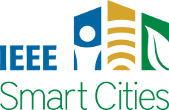Foreword: Special Issue on Smart Transportation
Written by Sara Paiva
Transportation is considered one of the verticals of Smart Cities and currently has enormous importance due to the global challenges that are posed in terms of cities’ sustainability. It has been given a huge highlight by organizations such as the United Nations.
In this special issue of the IEEE Smart Cities eNewsletter, four articles are presented that address different challenges within the area of smart transportation. The articles address and combine topics such as crowdsourcing, vehicle parking, street quality indicators, vehicles localization and vehicle platooning.
The first article of this special issue, entitled “SocialPARK: An Incentivizing Crowdsourced Parking Ecosystem”, is authored by Christos Zaroliagis, a Professor at the University of Patras, Greece. This article addresses the adoption of the crowdsourcing paradigm to collect information on availability of parking spaces, highlighting the challenges of utilization and data quality, considering the possible existence of unreliable users. The author presents a crowdsourced-based ecosystem, called SocialPARK, that aims to activate a community of interacting citizens, parking companies and municipalities, towards a mutually profitable management of the publicly available parking space.
The second article is written by Dr. Hrishikesh Venkataraman, Associate Professor in the Indian Institute of Information Technology (IIIT) Sri City. The article is entitled “Real-Time Road Quality Indicator (RQI) for Smart Driving” and addresses the topic of smart driving and the impact that road conditions represent on the implementation and delivery of an efficient transportation network. Some aspects, such as lane characteristics, potholes, markings, lightning (among others), are pointed out by the author as essential for the calculation of the RQI (Real-Time Road Quality Indicator). Mechanisms to identify road characteristics are addressed, as well as criteria to provide a rating for the overall road quality.
The third article, entitled “LoRaWAN as a Cost-Effective Technology for Assets Localization in Smart Harbors”, is authored by Azin Moradbeikie and co-authored by Ahmad Keshavarz and Habib Rostami from the Persian Gulf University, Bandar Bushehr from Iran, and by Sara Paiva and Sérgio Lopes from the Instituto Politécnico de Viana do Castelo in Portugal. The article presents the main challenges of assets localization in a harbor, pointing out that robust and reliable location and tracking methods are fundamental in this type of environment, promoting a more efficient management and decision making. Considering the impact of environmental conditions on signal transmission as well as assuming the existence of LoRaWAN gateways in smart harbors, the authors argue that improved location estimation can benefit from an effective prediction of the signal features changes, with environmental sensors in Gateways and by deploying IoT-based channel reference nodes.
The fourth and final article of this special issue is authored by Dr. Jeya Mala and A.Pradeep Reynold, Associate Professor at Fatima College and Lecturer at GEMS Polytechnic College, respectively, and is entitled “Intelligent Agents in Vehicle Platooning for Smart Cities”. In this article, autonomous vehicles are introduced to solve traditional traffic control systems. The authors make a proposal to mitigate some of the problems associated with platoon, which is made possible through automated driving technology and vehicle-to-vehicle communication via V2V. The use of intelligent agents to track and communicate the speed of the leading vehicle to mitigate platoon problems is the main contribution of this article.
As leading editor of this special issue, I would like to extend special thanks to the authors, to the IEEE Smart Cities Publications Committee, and to all IEEE staff for their ever-tireless support.
This article was edited by Aris Gkoulalas-Divanis
For a downloadable copy of the October 2021 eNewsletter which includes this article, please visit the IEEE Smart Cities Resource Center.

To have the eNewsletter delivered monthly to your inbox, join the IEEE Smart Cities Community.
Past Issues
To view archived articles, and issues, which deliver rich insight into the forces shaping the future of the smart cities. Older eNewsletter can be found here. To download full issues, visit the publications section of the IEEE Smart Cities Resource Center.



